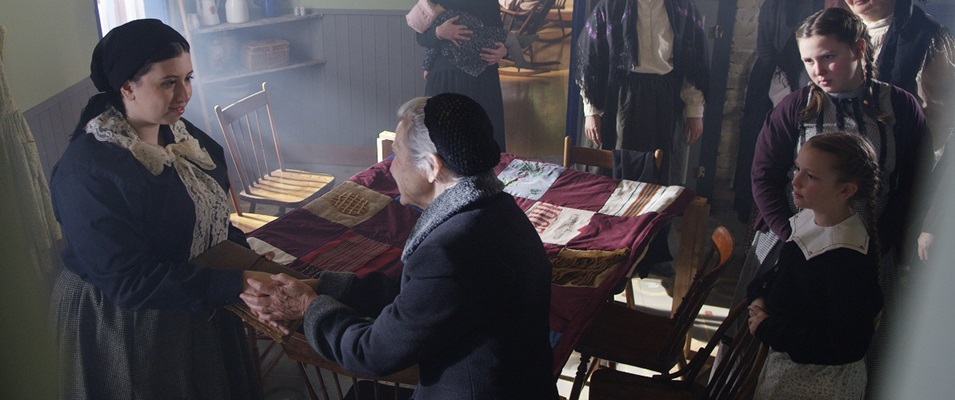
Robert Stermscheg of Niverville has just released a new novel, although it’s far from his first. Over the last 15 years, this local author has published a half-dozen books, of different types and genres. But they all have something important in common: a deeply personal connection to his own life.
Stermscheg made a big move in June 2023, relocating from Winnipeg to Niverville to spend more time with his son’s family and newborn granddaughter. Other important moves have corresponded with huge changes over the course of his life, such as immigrating to Canada at the age of 11 and retiring from the Winnipeg Police Service in 2006 among them.
These moves have changed his life. But as an author, Stermscheg would say it’s the stories we tell ourselves that will have the greatest impact.
When Stermscheg’s son moved to Niverville with his fiancée to start a family, he and his wife Toni decided to move as well. The pair already attended church in Niverville at the Church of the Rock congregation that meets in the Heritage Centre.
“Niverville is a great community, but we had lived in a condo. I mean, we had to buy a lawnmower again!” says Stermscheg. “But we love it here. The little one is seven months, so we are usually over there.”
His journey to becoming an author took many turns. After high school, he initially trained to become a commercial pilot, although it was the police force that eventually called up his application.
“Aside from the few police chases, a lot of it was report writing,” Stermscheg says about his first career. “As computers advanced, there was more and more focus and emphasis on writing a good report. The crown attorney, the defence lawyer, and others would see the report. If it was poorly constructed, it would come back to haunt you. So that’s where I got some of my writing established.”
But his dream—his goal—was always to write fiction.
When he knew it was time to retire in 2006, he also knew it wouldn’t mean a life of relaxation. Rather, he intended to embark on a new endeavour.
“I wasn’t just going to sit around at home,” he says. “That’s when I approached my wife and said, ‘This is my dream.’”
German to English
As an avid reader of adventure and mystery, he found himself drawn to the popular German writer Karl May, whose stories have always captivated him. He also wanted to be able to share this interest with friends. However, the books were written in German and didn’t have any English translations.
“[May’s books] are still hugely popular in Europe,” Stermscheg explains. “The equivalent, I would say, is Alexandre Dumas. Same genre, same time period. Where Dumas wrote The Count of Monte Cristo and The Three Musketeers, May wrote about the American northwest, about cowboys and indians. And my dream was to bring this author to a North American English-speaking audience.”
May wrote more than 70 books before his death in 1912.
“It’s wholesome, good-guy-versus-bad-guy stories,” Stermscheg says. “It’s all about conflict. It’s plot-driven.”
He learned that one of May’s series, which was of particular interest to Stermscheg, was in the public domain. That meant it was available for any author to begin the work of translation from German to English. It just hadn’t been done before.
“I thought I could start with number one and see how that went,” he says. “I thought, ‘This is my chance. I could get that published.’”
Finding a publisher for the translated work was a major obstacle. However, through a network of other authors he learned of a publisher that was interested.
Another obstacle was the sheer length of the novel. Just the first installment in the series was 150,000 words, unabridged.
“Most people, they can handle about 100,000 words. Beyond that, unless it’s Harry Potter or something like that, you start losing them, right? I wanted to be faithful to the original text. So I found the text in German and I looked at it. I thought, ‘I’ll have to chop it up differently, into more palatable lengths.’”
Another obstacle, beyond translating the book word for word, was to take into account the way German idioms translate into common English phrases.
“You’ve got to work with context, and I believe you have to have a knack to understand the flow,” he says. “So I just kind of pictured how May envisioned it and how that would translate from German to English.”
The challenge was to take a story written in the 1880s and filter it through not just the translation, but the imagination process of a crosscultural, trilingual writer in the early 2000s, and come out with a novel that was both cohesive and a pleasure to read.
Stermscheg took on the project and, together with the help of local editor Evan Braun, succeeded in having the first four of six books published over several years. He plans to publish the final two volumes in the near future.
Stermscheg’s first English translation in the series is called The Prussian Lieutenant. The fourth and most recent book, Captain Richemonte, was just released earlier this year.
A Family Memoir
While working with the German text, Stermscheg found himself drawing upon his father John for help.
“My dad was still alive at the time and he was invaluable,” says Stermscheg. “I would say, ‘Dad, does this make sense?’ Because he could read the German and the English.”
In 2007, while working on the second book, Stermscheg had an encounter with his father on a ski hill. They were having a conversation and sharing stories, just as Stermscheg could recall them doing countless times before, but this time something clicked.
“It was one of those Aha! moments. I said, ‘Dad, you have a lot of these stories.’ And the stories were true. He wasn’t telling somebody else’s; they were his. Some of them were of the war, others after the war. I said, ‘We should write a memoir together.’”
Stermscheg describes his father as being very technical, more enthusiastic about calculus and math than the details of what makes a good story. But the content of the family history was so compelling to Stermscheg that he knew it would be a worthwhile pursuit.
Despite his father’s reluctance, Stermscheg collaborated with him to self-publish the memoir, entitled POW #74324. The book details John’s extraordinary experiences during World War II, including imprisonment in a German stalag.
The book, which comes with a selection of family photos from the wartime era, is more than a collection of stories. It is a profound father-son achievement.
“That’s the thing I’m most proud of,” says Stermscheg. “It has a personal connection. I wanted to share my dad’s stories… He survived the Second World War. Well, he did more than survive.”
From Fact to Fiction
In every sense of the word, John was Stermscheg’s hero. And the opportunity to immerse himself in the history of the war enabled him to further grow as a writer.
But after the translation and memoir projects, he decided that his desire to breathe life into his own unique characters could no longer be put off. He was ready to embark on a new adventure.
Utilizing a hybrid model where both publisher and writer invest in the final product, Stermscheg was able to write his first wholly original novel, entitled Stealth. For this book, he tapped into his well-developed skillset as historian and novelist to tell the tale of an American bomber pilot in World War II who is shot down in enemy territory.
The main character, Jack Swaggart, becomes separated from his crew and must decide whether to trust a beautiful German stranger. Stermscheg’s own knowledge of aircraft birthed an intriguing plot involving a new type of German warplane, a design unlike anything the Allies had seen before.
Stermscheg’s next original novel is already in the works. It will feature a female main character who came to Stermscheg as he was writing Stealth. After his editor, Braun, recommended that he remove this character to streamline the book, Stermscheg realized that he had enough inspiration to create a prequel showcasing her.
“[Braun] gave me some really good advice,” he says. “There were a couple of scenes in there with a female heroine that I wanted to explore and I never got to finish. I chose to remove her, but now she is in the prequel. I realized there were several interesting stories to tell about her.”
“Just Write”
Stermscheg’s creativity may be flowing, but he admits that finding his way through the literary maze is a big challenge. For one thing, there’s the classic struggle of submitting pitch letters to which one never receives a response, which is disheartening. Then there’s self-publishing, an alternative route that is more common than ever albeit risky and more costly. As an author, marketing oneself places huge demands on one’s time and energy, often for very little return.
And since the onset of the COVID-19 pandemic, in-person networking and marketing opportunities are harder than ever to come by.
“Everything’s changed, right?” he says. “You try all these different things, and I have a certain following, but just because something worked two years ago doesn’t mean it will work again today.”
Despite the challenges of writing professionally, Stermscheg wouldn’t give it up for anything. He derives too much fulfilment from moving others with his storytelling, especially when it comes from tapping into his own familial lore.
“Especially about the memoir, I said, ‘It doesn’t matter what the end result is, really. Just write. Put it down on paper.’ Well, preferably on the computer, so you can save it! The main thing is to start writing.”
Stermscheg also encourages writers not to get discouraged. It’s helpful to connect with other writers to meet with and share community.
But ultimately, he adds, it’s okay to be your own target audience.
“You don’t have to have it all polished,” he advises. “If you have a peer group, they can help you. And an editor is invaluable. But be comfortable with what you’re writing, whether it’s poetry, short stories, or a novel. Write for yourself.”




















